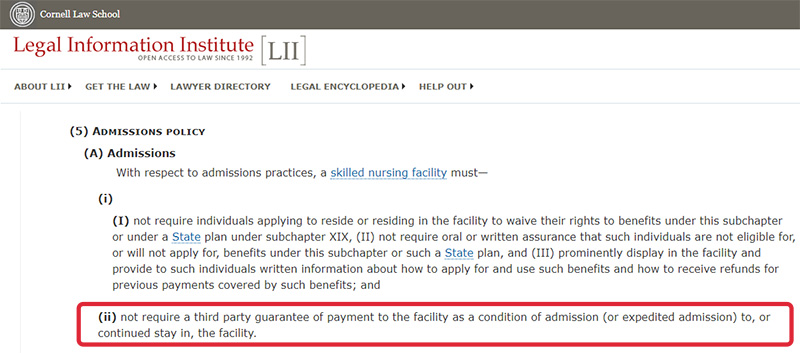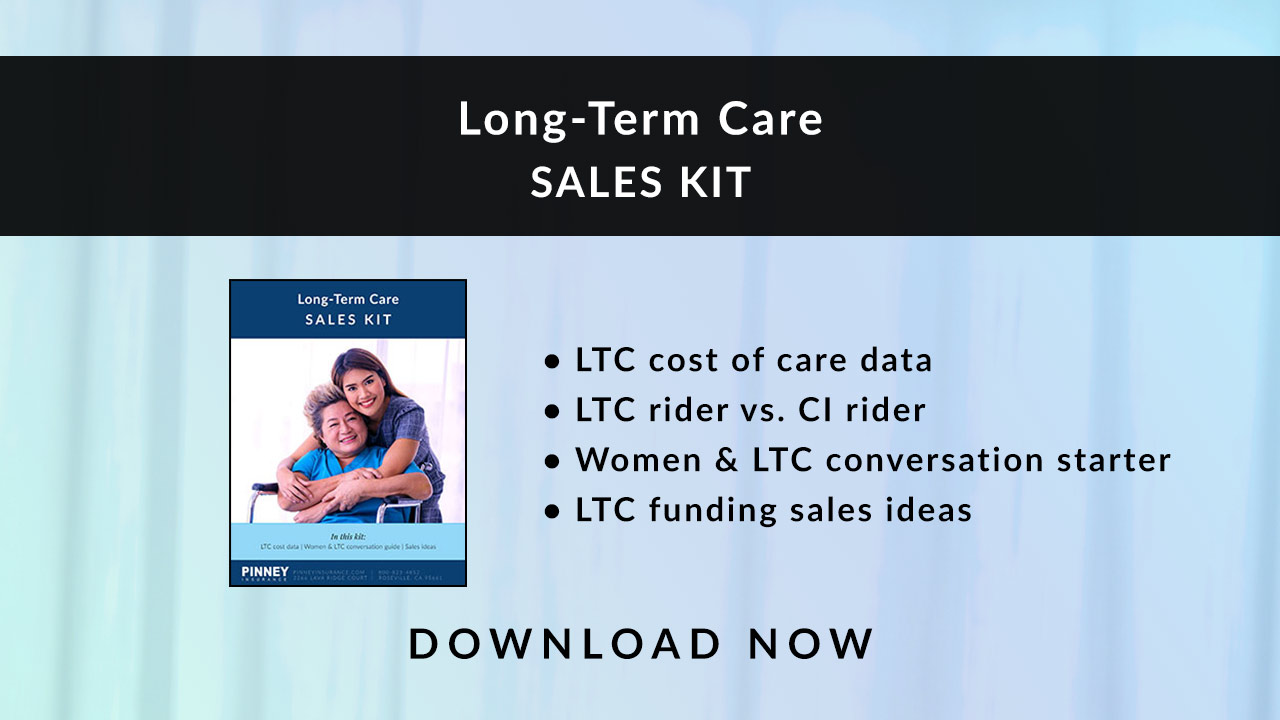
This scary trend is another good reason to urge clients to make a plan for long-term care.
This past summer, you may have seen the headlines about nursing home lawsuits. To collect on outstanding payments due from patients, some nursing homes have sued relatives for the balance.
This is a disturbing scenario, and one worth bringing up when you’re talking to clients. In this case, not making a plan for long-term care may leave their kids, grandkids, friends, and neighbors all vulnerable to lawsuits. Whether those lawsuits are valid or fair is almost beside the point when you consider the hassle and pain they cause.
But what’s the basis for these lawsuits…and how can you help clients avoid them?
No time to read? Watch our video overview:
“Responsible Party” Long-Term Care Lawsuits
Almost all the lawsuits that made headlines hinge on one factor: the person who got sued signed the patient into the nursing home. In some cases, this was a relative. In others, it was a friend or neighbor – someone who was only trying to help, but had no financial connection to the person being admitted.
The problem? Those nursing home admission documents contained a scary provision. It stated that the person signing was a “responsible party” who must “insure continuity of payment.” That's legalese making them responsible for payment if the patient were unable to pay.
This is actually illegal thanks to the Federal Nursing Home Reform Law. Care facilities cannot require a third party to be financially responsible in order to admit the patient. (See section 5Aii below)

But unscrupulous facilities often do this anyway. They simply add that language to the admission paperwork and never say a word about it.
What actually happened to bring these lawsuits into the spotlight?
Most of these headline-grabbing cases occurred in a particular county in New York, which operates a number of federally licensed nursing homes. Twenty-four of these nursing homes filed 238 cases, suing for over $7 million, from 2018 to 2021. One woman was sued twice, for multiple relatives in one of the county’s nursing homes. (Source: NPR)
The county’s justification? It’s unfair to the county’s taxpayers to let bills for care go unpaid when the people who received that care have assets that could be tapped. While that might sound reasonable, what isn’t reasonable is the fact that the people who signed a friend or loved one into a nursing home may have had no idea they also agreed to be financially responsible for that person’s care.
Although such cases aren’t common in the rest of the country, they aren’t unheard of, either. In addition to New York, similar lawsuits have come up in California, Illinois, Kentucky, Massachusetts, and Ohio. (Source: NPR)
If that’s not worrying for you and your clients…it should be.
“Filial Support” Long-Term Care Lawsuits
There’s another type of lawsuit that your clients may be vulnerable to. Filial support laws (on the books in 25 states) require adult children to pay for the cost of an indigent parent’s care. These state laws vary in terms of if, how, and when they can be applied: variables include the required age of the parent, whether there’s a written agreement to pay for care, or whether the care is for mental or physical illnesses.
Let’s start by saying that it’s rare for states to invoke these laws.
However, with long-term care lawsuits in the news and the ever-increasing cost of care, it’s worth knowing about – especially if your client has an indigent parent.
In many cases, when these laws are invoked, it’s because the parent receiving long-term care does not qualify for Medicaid. If the parent qualifies for Medicaid, the government will pay. Problems usually only arise when:
- the parent receives long-term care but does not qualify for Medicaid (i.e., has a pension or other income source high enough to disqualify them), or
- the parent transferred, gifted, or sold assets at a less-than-fair-market price to qualify for long-term care via Medicaid and got caught in a “lookback.” In California, lookbacks are 30 months; in the rest of the country, they are 60 months.
If your client worries about qualifying for Medicaid, refer them to an attorney who specializes in elder law. They’ll be able to review your state’s specific laws regarding common strategies for spending down assets without triggering a lookback penalty.
How to Help Clients
So how can clients avoid these problems?
There’s only so much we can do for our clients in terms of the legal side of things. We aren’t lawyers – we’re insurance agents. But we can give them the tools they need to make a plan to pay for their future care. If they have a way to pay for care, there’s no need for a facility to seek out their family for payment.
If you need sales ideas & stats to help start that conversation, check out these previous posts:
- Long-Term Care: 3 Reasons for Clients to Act + 7 Sales Ideas

- Industry Update: Washington State’s Long-Term Care Act

- November 2021 Sales Kit: Long-Term Care

Pitfalls to Be Aware Of
Once your clients have a plan, they still need to know about the pitfalls waiting for them…and whoever may eventually sign them into a facility. Only a lawyer can advise your clients on how to handle that paperwork. But you can advise them about the issues other people have faced, which may help convince them to take this issue seriously:
- Unscrupulous care facilities may insert language in the admissions form(s) making the person signing financially responsible for the patient. This may include obligating them to apply for Medicaid or Medicare on the patient’s behalf, even if they don’t have control over the patient’s finances.
- Employees of the facility may be unaware such language exists in the document. Yes, you can ask them if signing makes you financially responsible. But can you trust their answer?
- Employees of the facility may be unaware of your legal rights. They may tell you that signing the admissions document is required. However, it is against federal law to require you to take personal liability for the person being admitted.
- Before signing, you can strike through any clauses you do not agree to. This includes wording that makes you a “responsible party,” “financial agent,” or “guarantor” of future payment.
- Worried about signing? You always have the right to take the document to an attorney first.
Want to go the extra mile? Contact a local attorney with experience in elder law. Ask if you can refer clients to them. Better yet, see if they’d record an on-demand webinar with common scenarios and advice, in return for your referrals.
Adding value like this makes you a more complete resource for your clients. It strengthens your relationship and can deepen the client's commitment to you as their agent.
That's our quick look at long-term care lawsuits!
Have you had any clients mention this to you? Do you know anyone who has experienced this? Share your experience in the comments!
